Africa: it’s a Continent Not a Country
Africa Is Not a Country: The Incredible African Continent
In recent years, the phrase “Africa is not a country” has become a rallying cry for many who are frustrated by the persistent misconceptions and generalisations made about the African continent. While it may seem like a simple statement, it carries profound implications for how we perceive and engage with Africa. In this piece we delve into why this statement is crucial and why it is vital to recognize the incredible diversity, challenges, and potential that Africa represents.

Table of Contents
*All Book Images Open a New tab to our Bookshop
**If you buy books linked to our site, we get 10% commission from Bookshop.org, whose fees support independent bookshops.
Africa: it’s a Continent Not a Country
First and foremost, let’s address the obvious: Africa is not a country; it is a vast and multifaceted continent comprising 54 recognized countries, each with its own unique culture, history, and challenges. Yet, surprisingly, this fundamental fact seems to elude many people around the world. The tendency to oversimplify and homogenize Africa’s complexities has been perpetuated through media, education, and even well-meaning efforts.
One common misconception is the depiction of Africa as a single, monolithic entity struggling with poverty, disease, and conflict. While these issues are certainly present in some parts of the continent, they do not define the entirety of Africa. In fact, Africa is a continent of remarkable diversity, not only in terms of its landscapes, languages, and cultures but also in its economic development, governance, and potential for growth.
A Rich Diversity of Cultures
Diversity, the cornerstone of Africa’s identity, cannot be overstated. It boasts a stunning array of linguistic diversity, with over 2,000 distinct languages spoken across the continent. Moreover, Africa is home to various ethnic groups, each with its own traditions, histories, and ways of life. From the Berbers of North Africa to the Zulu in the South, the diversity of Africa’s people is a testament to its rich tapestry of cultures.
Africa is also characterized by immense geographical variation. From the arid Sahara Desert in the north to the lush rainforests of Central Africa, the continent spans a range of ecosystems that are home to a staggering variety of flora and fauna. This biodiversity is not only valuable for its ecological significance but also for its potential in sustainable development and pharmaceutical discoveries.
Sustainable Development
In the realm of sustainable development, Africa possesses immense potential. With its abundant natural resources, including vast tracts of arable land and renewable energy sources like solar and wind, the continent is primed for sustainable growth. Moreover, Africa’s burgeoning tech scene is driving innovation in areas such as fintech and agritech, offering solutions to longstanding development challenges. By harnessing these resources and fostering a culture of innovation, African nations can lead the way in sustainable development practices that prioritize economic growth while safeguarding the environment for future generations.
Pharmaceutical Discoveries
In terms of pharmaceutical discoveries, Africa is a treasure trove of biodiversity with the potential to yield groundbreaking medical breakthroughs. The continent’s rich flora and fauna have long been a source of traditional medicines, and modern scientific research is increasingly uncovering the therapeutic potential of African plants and organisms. From anti-malarial drugs derived from the Artemisia plant to potential treatments for HIV/AIDS and cancer, African biodiversity holds promise for addressing some of the world’s most pressing health challenges. Investment in research and development, coupled with support for local innovation, can unlock the full pharmaceutical potential of the African continent.
World’s Fastest-growing Economies
Moreover, Africa’s economic landscape is far from uniform. While some countries are grappling with economic challenges, others are experiencing rapid growth and industrialization. The African continent is home to several of the world’s fastest-growing economies, driven by sectors like technology, agriculture, and renewable energy. Recognizing these economic opportunities is vital for fostering global partnerships and investments that can benefit both African nations and the world at large.
Ethiopia
Several African nations have emerged as leaders in economic growth, defying stereotypes and attracting global attention. Ethiopia, for instance, has experienced rapid industrialization driven by investments in infrastructure, manufacturing, and agriculture. The government’s ambitious development plans, including the construction of industrial parks and investment in renewable energy, have propelled Ethiopia’s economy forward, making it one of the fastest-growing in the world.
Similarly, Rwanda has made remarkable strides in economic development, leveraging technology and innovation to transform key sectors such as tourism, ICT, and renewable energy. With a focus on good governance and strategic investments, Rwanda has become a beacon of progress in East Africa, boasting consistent GDP growth rates that outpace many developed economies.
The Success Story of Ghana
Ghana, another African success story, has positioned itself as a hub for investment and entrepreneurship. With stable governance, a diversified economy, and a growing middle class, Ghana offers an attractive environment for businesses seeking opportunities in West Africa. The country’s focus on economic diversification, including initiatives to promote agriculture, manufacturing, and services, has fueled sustained growth and positioned Ghana as one of the continent’s most promising investment destinations. Additionally, Ghana’s commitment to education and human capital development has helped cultivate a skilled workforce capable of driving innovation and competitiveness in the global marketplace.
Kenya the Silicon Savannah
Kenya, often referred to as the “Silicon Savannah,” has emerged as a leader in technology and innovation on the African continent. Nairobi, its capital city, has become a vibrant tech ecosystem, attracting startups, investors, and talent from around the world. With initiatives like M-Pesa revolutionizing mobile payments and a burgeoning fintech sector driving financial inclusion, Kenya’s digital economy is a key driver of its rapid economic growth. Moreover, the government’s focus on infrastructure development, including investments in roads, railways, and renewable energy, has created an enabling environment for businesses to thrive and for Kenya to maintain its position as one of Africa’s fastest-growing economies.
Challenges do exist in Africa, and they should not be minimized. Poverty, healthcare disparities, political instability, and environmental concerns are pressing issues that require thoughtful solutions. However, it’s crucial to address these challenges within the context of individual countries rather than painting the entire continent with a broad brush.
Stereotypes that have Plagued the Continent
Stereotypes have long plagued perceptions of Africa, perpetuating harmful narratives that undermine the continent’s complexity and diversity. One prevalent stereotype is the portrayal of Africa as a homogenous entity defined by poverty, disease, and conflict. Such depictions fail to acknowledge the vast differences between African countries and regions, overlooking the vibrant cultures, thriving economies, and rich histories that characterize many nations. This oversimplified narrative not only reinforces negative stereotypes but also hinders efforts to address the root causes of challenges facing specific countries
Another damaging stereotype is the portrayal of Africa as a continent in perpetual need of saving by the West. This narrative, often referred to as the “white savior complex,” diminishes the agency and resilience of African communities and perpetuates a paternalistic approach to development. It overlooks the contributions of local leaders, activists, and organizations working tirelessly to address issues within their own communities and reinforces a sense of dependency on external aid. Moving beyond these stereotypes requires a concerted effort to amplify diverse voices from Africa and to challenge narratives that undermine the continent’s agency and potential.
Beyond the Simplistic Narrative
To truly engage with Africa effectively, we must move beyond the simplistic narrative and acknowledge the continent’s complexity. This starts with education. Schools and media outlets worldwide must make a concerted effort to provide accurate, nuanced information about Africa. This includes highlighting the success stories, innovations, and contributions of African nations and individuals to the global community. Such efforts can help dispel the stereotypes that have plagued the continent for far too long.
Furthermore, it’s imperative for governments, NGOs, and international organizations to tailor their approaches to the specific needs and circumstances of each African country. Solutions that work in one nation may not be applicable in another due to differences in culture, history, and governance. By taking a country-centric approach, we can foster more meaningful and effective partnerships for development and cooperation.
Education, Healthcare and Infrastructure
Addressing the challenges of education, healthcare, and infrastructure is crucial for unlocking Africa’s potential and fostering sustainable development. In the realm of education, investing in quality schooling and vocational training programs can empower the continent’s youth with the skills and knowledge needed to succeed in an increasingly globalized world. By prioritizing education access and quality, African nations can bridge the learning gap, reduce unemployment, and drive innovation and economic growth.
Similarly, improving healthcare systems is essential for ensuring the well-being of African populations and fostering human capital development. Access to essential healthcare services, including vaccinations, maternal care, and disease prevention programs, can significantly reduce mortality rates and improve overall health outcomes. Additionally, investing in healthcare infrastructure, such as hospitals, clinics, and medical research facilities, can enhance the continent’s capacity to respond to health crises and promote innovation in medical science.
Infrastructure development is another key priority for African nations seeking to unlock their economic potential. Reliable transportation networks, modernized energy grids, and access to clean water and sanitation services are essential for facilitating trade, attracting investments, and improving quality of life for citizens. By investing in infrastructure projects that prioritize sustainability and inclusivity, African countries can overcome logistical barriers, stimulate economic growth, and create opportunities for all segments of society.
Sovereignty and Agency
Respecting the sovereignty and agency of African nations is paramount for fostering meaningful partnerships and sustainable development on the continent. Historically, Africa has been subjected to external interference and exploitation, which has undermined the self-determination and autonomy of its nations. Moving forward, it is essential for the international community to recognize and uphold the sovereignty of African countries, allowing them to chart their own paths to prosperity without external coercion or imposition.
Empowering African nations to exercise agency in their development processes entails respecting their diverse cultures, traditions, and governance systems. Rather than imposing one-size-fits-all solutions, it is crucial to engage in inclusive dialogue and collaboration that takes into account the unique circumstances and priorities of each country. By fostering partnerships based on mutual respect and cooperation, the global community can support African nations in realizing their full potential and achieving sustainable development goals that benefit all stakeholders.
An Equal Partner on the Global Stage
The statement “Africa is not a country” serves as a powerful reminder of the need to recognize and celebrate the remarkable diversity and potential of the African continent. It is a call to action for all of us to move beyond outdated stereotypes and to engage with Africa on its own terms. By doing so, we can foster meaningful partnerships, address pressing challenges, and unlock the boundless opportunities that Africa has to offer. Africa is not a country; it is a continent of promise, and it’s time we treat it as such.



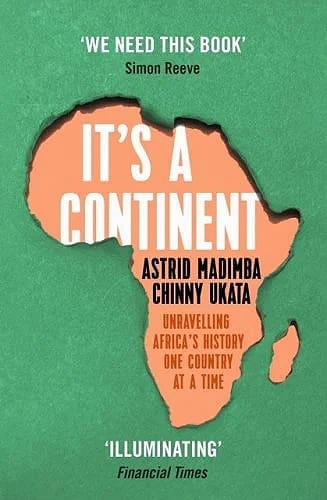
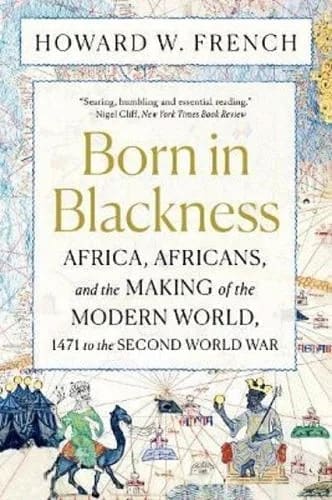
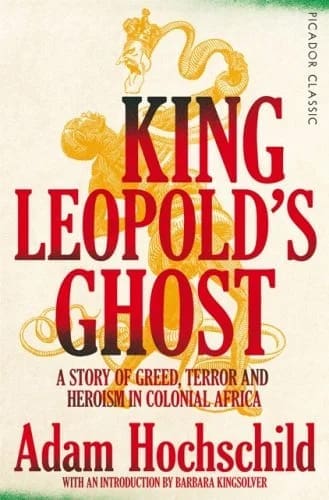
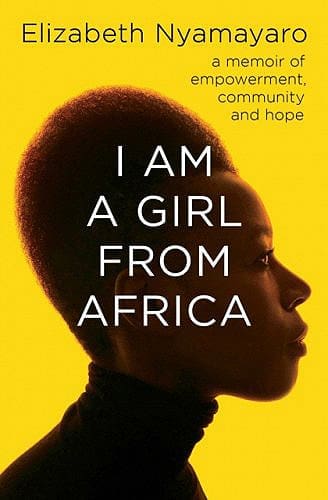
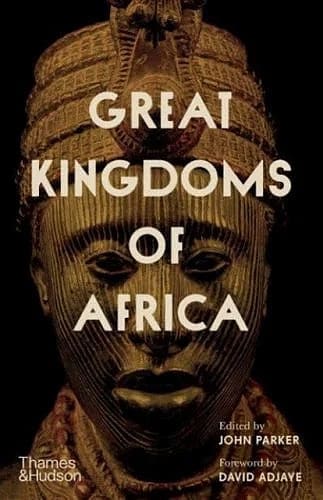
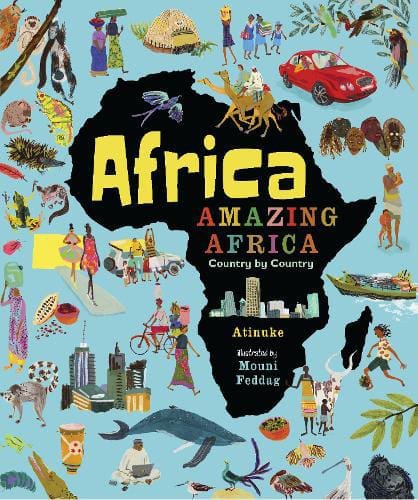






















Leave a Comment